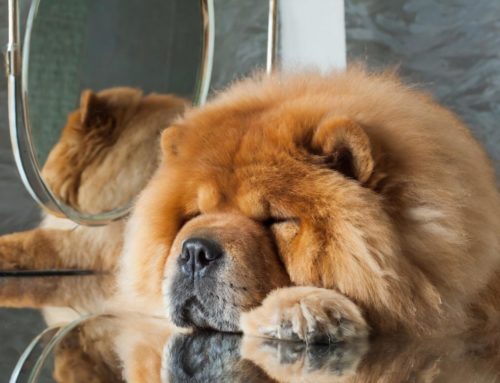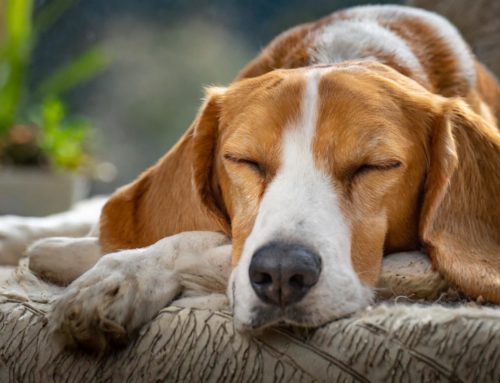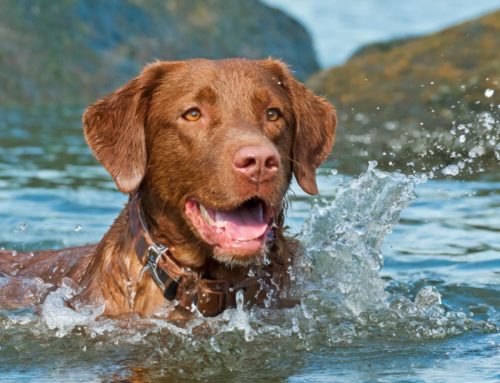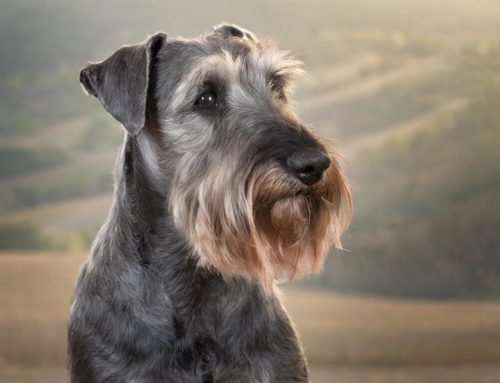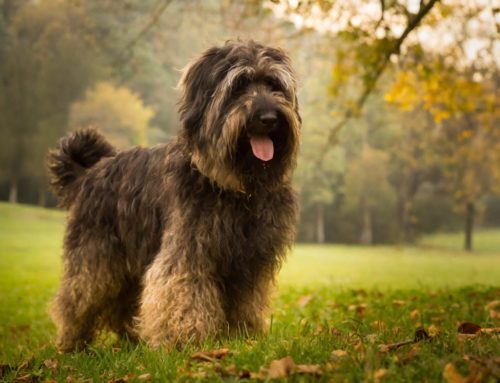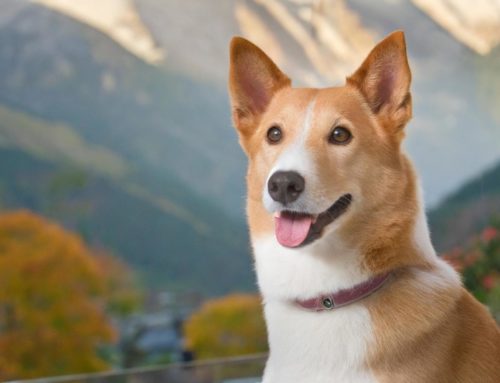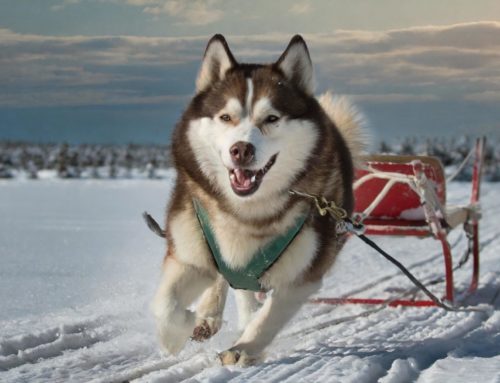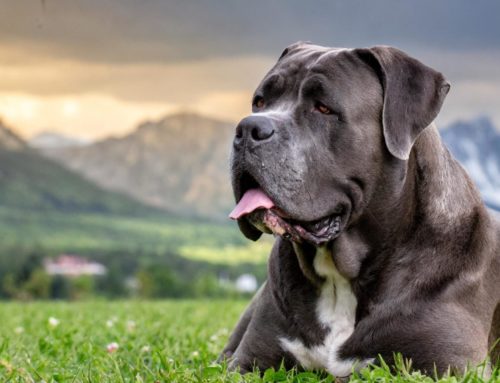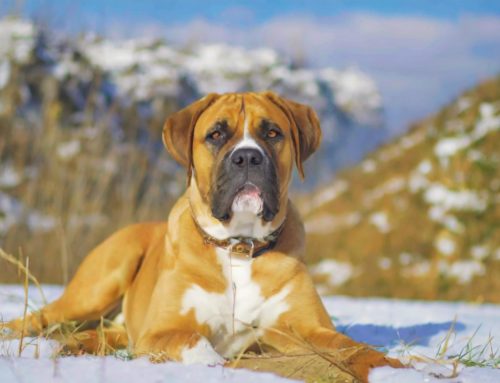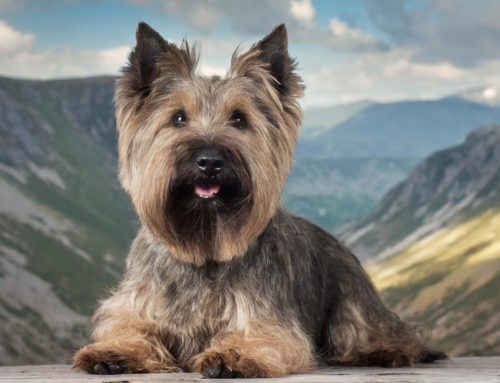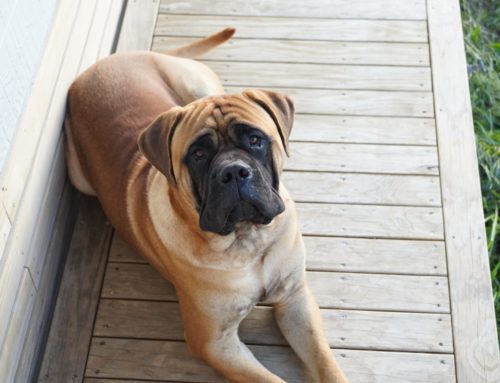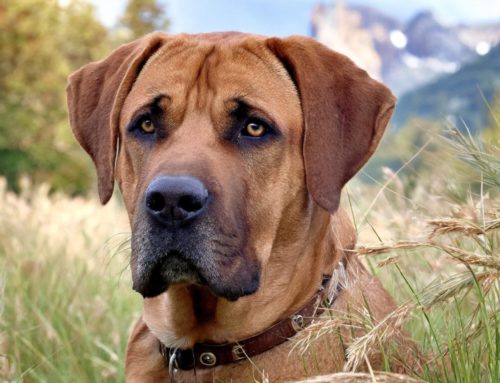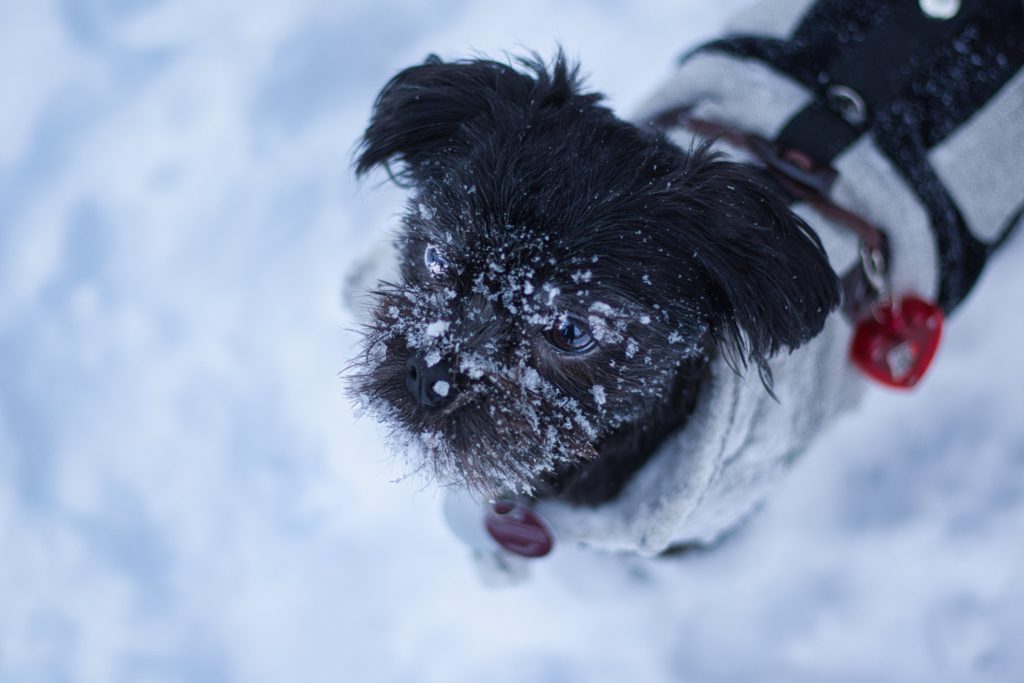
The Affenpinscher is a small and rough-haired dog breed that originated in Germany. The name “Affenpinscher” literally means “monkey-pinscher” in German because of its funny appearance and character.
These dogs have a rough coat and bushy eyebrows around the eyes, giving them their distinctive look. They also have an imposing beard and chin, giving them a charming appearance.
The breed has been around for centuries and was first depicted in artwork of the fifteenth and early sixteenth centuries, where artists such as Jan van Eyck and Albrecht Dürer portrayed the Affenpinscher. They were originally bred to hunt rats and mice in stables and later became popular as guard dogs and companion dogs.
The appearance of an Affenpinscher
The Affenpinscher is a small dog with a distinctive appearance. With a shoulder height of about 25 to 30 cm, it belongs to the small breeds. They have a compact body and a rough coat that must be brushed regularly to prevent tangles. Coat care is important to maintain their characteristic appearance.
Characteristic of the Affenpinscher are the bushy eyebrows around the eyes and on the cheeks, giving them an expressive expression.They have a short muzzle and an imposing beard and chin. The incisors of the lower jaw protrude slightly in front of the upper teeth, resulting in an overbite.
The Affenpinscher is a purebred dog with a natural tendency to move quickly and is often alert to its surroundings. Despite their small size, they are known for their courageous and watchful nature. They are sometimes affectionately called “lap dog” because of their affectionate nature.
Hereditary diseases and disorders
Hereditary diseases and disorders can occur in Affenpinschers, as with all dog breeds.
Some hereditary diseases and conditions that can occur in Affenpinschers include:
- Patella Luxation: A condition in which the kneecap slides out of its normal position, which can cause pain and lameness.
- Heart problems: Some Affenpinschers may be predisposed to heart disease, such as valve defects.
- Eye problems: Cataracts and other eye problems may occur.
- Legg-Calvé-Perthes Disease: A condition in which the head of the femur deteriorates, which can lead to pain and lameness.
- Tracheal Collapses: A weakness in the trachea that can cause coughing and breathing problems.
- Hypothyroidism: A slow-working thyroid gland can cause various symptoms.
- Liver disorders: Some Affenpinschers may be predisposed to liver problems.
Character of the Affenpinscher
The Affenpinscher is known for its lively and affectionate nature. As puppies, they are playful and curious, and these traits are maintained as they grow into adult dogs. They have a natural tendency to move quickly and react to their surroundings, making them energetic companions.
The Affenpinscher is a confident dog with a strong character. Despite their small size, they often behave like large terriers. They have a strong personality and can be quirky at times, but this is what makes them charming and unique.
These dogs need lots of exercise and like to be active. They love to play and explore, and they thrive on sufficient physical and mental stimulation. Although they can be independent, Affenpinschers bond strongly with their families and make excellent family dogs. However, they can be reserved toward strangers, which makes them good guard dogs.
The Care of the Affenpinscher
- Grooming requires attention to several aspects to ensure they are healthy and happy.
- Nutrition: Provide high-quality dog food tailored to the needs of small breeds such as the Affenpinscher. Monitor nutrition to prevent obesity.
- Coat care: An Affenpinscher’s coat is rough-haired and should be brushed regularly to prevent tangles and matting. These dogs do not shed much, so regular brushing is usually sufficient.
- Activity: Affenpinschers are active dogs and need daily exercise. They love to play and go for walks.
- Health: Like all dogs, Affenpinschers can be susceptible to certain hereditary diseases. It is important to work with a reliable breeder to minimize the risk of genetic diseases.
- Socialization: Early socialization with other dogs and people is important to ensure they are well-adjusted and comfortable in different situations.
- Trimming: Occasionally an Affenpinscher’s head hair should be trimmed to maintain the desired look.
- Character traits: These dogs are known for their affectionate and watchful nature. They are devoted to their family and love attention.
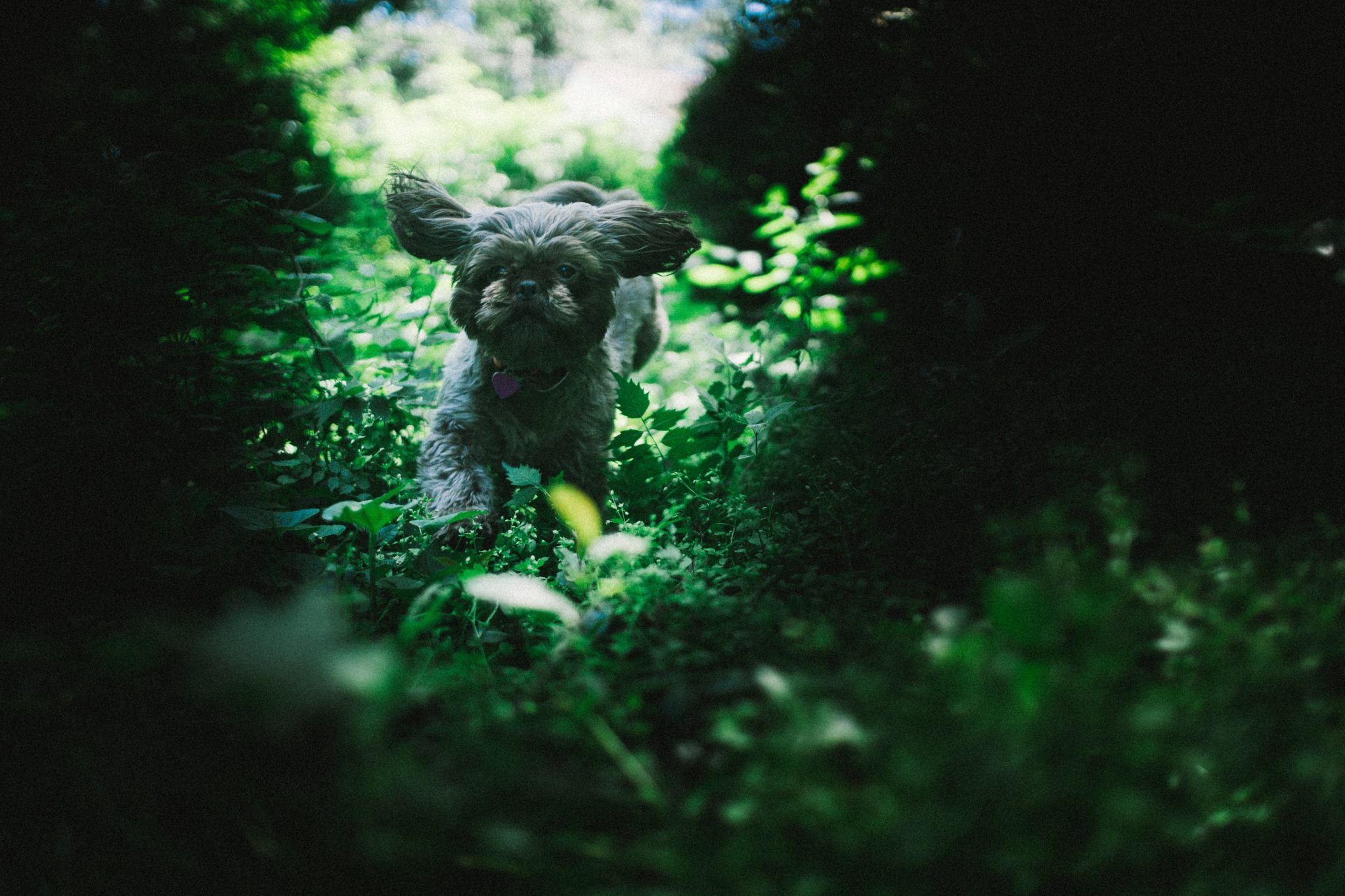
Socialization and education of the Affenpinscher
Socialization and upbringing are essential to creating a balanced and well-adjusted adult dog. Being a dwarf pinscher with a natural tendency to become quickly attached to their owners, it is important to provide proper socialization and upbringing.
In the early stages of growing up a puppy, it is crucial to expose them to different situations, people and other dogs. This helps them become confident and friendly in different environments. Griffon, FCI and other breeds can gain important experiences during this phase.
Affenpinschers tend to be watchful and alert, which are good traits, but excessive shyness or aggression should be avoided by introducing them to various social interactions.Time and patience are essential in raising these dogs. They can be stubborn at times, but with a consistent and positive approach, they respond well to training.
How much experience does an Affenpinscher require
The level of experience required to raise and care for an Affenpinscher depends on several factors, including the individual dog, parenting needs and the owner’s goals. Although these dogs are small in size, they have strong personalities and character traits that require some experience to handle well.
Affenpinschers naturally tend to become quickly attached to their owners and can sometimes be stubborn. This requires patience and consistency in training. In addition, they need a lot of energy and exercise, so owners should be prepared to provide daily walks and play sessions.
Trimming their shaggy coat, which must be trimmed twice a year, can be a challenge for beginners. It is important to brush their coat regularly to prevent tangles.
Is training necessary?
Training is essential, despite their small size and cute appearance. These dogs naturally tend to learn quickly and are intelligent, which means they benefit from mental stimulation and obedience training.
Although they may be stubborn, they generally respond well to positive training methods, such as rewards and praise.Affenpinschers originated in Germany and are among the oldest and least changed dog breeds.
Their character is often strong and confident, highlighting why proper training is crucial. They are also predisposed to certain health problems, so it is important to teach them to tolerate medical procedures, such as teeth brushing.
Socialization is just as important as training. It helps them get along well with other dogs, people and situations.
How much exercise does an Affenpinscher need?
An Affenpinscher is a lively and active small dog, but they do not have the same exercise needs as some larger breeds. In general, Affenpinschers need moderate exercise to stay healthy and happy.
Daily walks, playing in the yard and interactive indoor play sessions are sufficient to meet their exercise needs. One or two short walks a day, along with playtime, are usually enough to keep them happy.
Despite their small size, Affenpinschers do have a strong personality and require mental stimulation. This can be achieved through puzzle toys, obedience training and activities that challenge them to think.
It is important to consider your dog’s individual needs and energy levels, as some Affenpinschers may require more exercise than others. However, excessive exercise should be avoided, as they are small dogs by nature and can be prone to joint problems.
How are they getting along with children?
This dog breed is known for its lively and quirky personality, but it is important to know how they interact with children.
In general, Affenpinschers are loving and devoted companions for families, including children. They can be playful and energetic, which can add a fun dynamic to family life. However, because of their small size, children must learn to handle them with care. Affenpinschers are vulnerable to rough play and can be spooked if approached too harshly.
It is essential to teach children how to play gently with the dog, and supervision is always necessary to ensure that both dog and child are safe.

Advantages of an Affenpinscher
The Affenpinscher has its own unique characteristics and character, with both advantages and disadvantages for potential owners to consider.
- Size: The Affenpinscher is a small dog, meaning it fits well in small homes and is easy to transport.
- Intelligence: These dogs are intelligent and can learn quickly, which makes them suitable for training and tricks.
- Loyal: Affenpinschers are devoted to their owners and form strong bonds.
- Vigilance: They are alert and function well as guard dogs, allowing them to protect their families.
- Little shedding: The Affenpinscher’s short coat sheds minimally, which is beneficial for people with allergies.
Disadvantages of an Affenpinscher
- Stubbornness: They can be stubborn and require consistent training.
- Attention: Affenpinschers need attention and companionship; they can develop separation anxiety.
- Boisterousness: They tend to be playful and lively, which can be overwhelming for some people.
- Potential health problems: Like many small breeds, Affenpinschers are predisposed to certain health problems, including joint problems.
- Time and care: Their coat requires regular brushing and grooming.
Life expectancy Affenpinscher
Life expectancy varies and depends on several factors, including genetics, health care and lifestyle. In general, Affenpinschers can have quite a long life span and usually live to be between 12 and 15 years old.
Buying or adopting an Affenpinscher
An Affenpinscher puppy’s cost in the US ranges from $1,800 to $3,500. Several factors influence this price:
- Breeder Reputation: Puppies from well-known breeders with champion lineage are priced higher than those from emerging breeders.
- Pedigree: Purebred Affenpinschers registered with the American Kennel Club (AKC) are costlier than non-registered counterparts.
- Geographical Location: Expect to pay more in high-cost living areas.
- Age: Adult Affenpinschers typically cost less than puppies.
- Show Quality: Competition-bred dogs are more expensive compared to pets.
Breeds Similar to the Affenpinscher:
If the Affenpinscher’s lively nature and distinctive appearance appeal to you, consider these similar breeds:
- Brussels Griffon: Shares ancestry with the Affenpinscher, displaying a slightly different coat and comparable temperament, with prices from $1,500 to $3,000.
- Silky Terrier: Noted for their glossy coats and loving nature, with prices ranging from $1,800 to $2,500.
- Yorkshire Terrier: Renowned for their elegant, long hair and spirited character, typically priced between $1,000 and $2,000.
- Miniature Schnauzer: Smart and lively, available in standard, giant, and miniature sizes, with Miniature Schnauzers usually costing $1,500 to $3,000.
These alternatives might be more available and could offer a better fit for your budget compared to the Affenpinscher.
Extra Advice:
- Thorough Research: Confirm that an Affenpinscher’s characteristics and care needs match your lifestyle.
- Visit the Breeder: See where the puppies are raised and meet their parents to check for health and temperament.
- Adoption Option: Many amazing dogs find themselves in shelters. Adopting can be a more affordable option, and while finding a puppy might be rare, adult dogs, including Affenpinschers or breeds alike, are often looking for homes.
- Ownership Costs: Remember to account for ongoing expenses beyond the initial price, including food, healthcare, grooming, and supplies.
